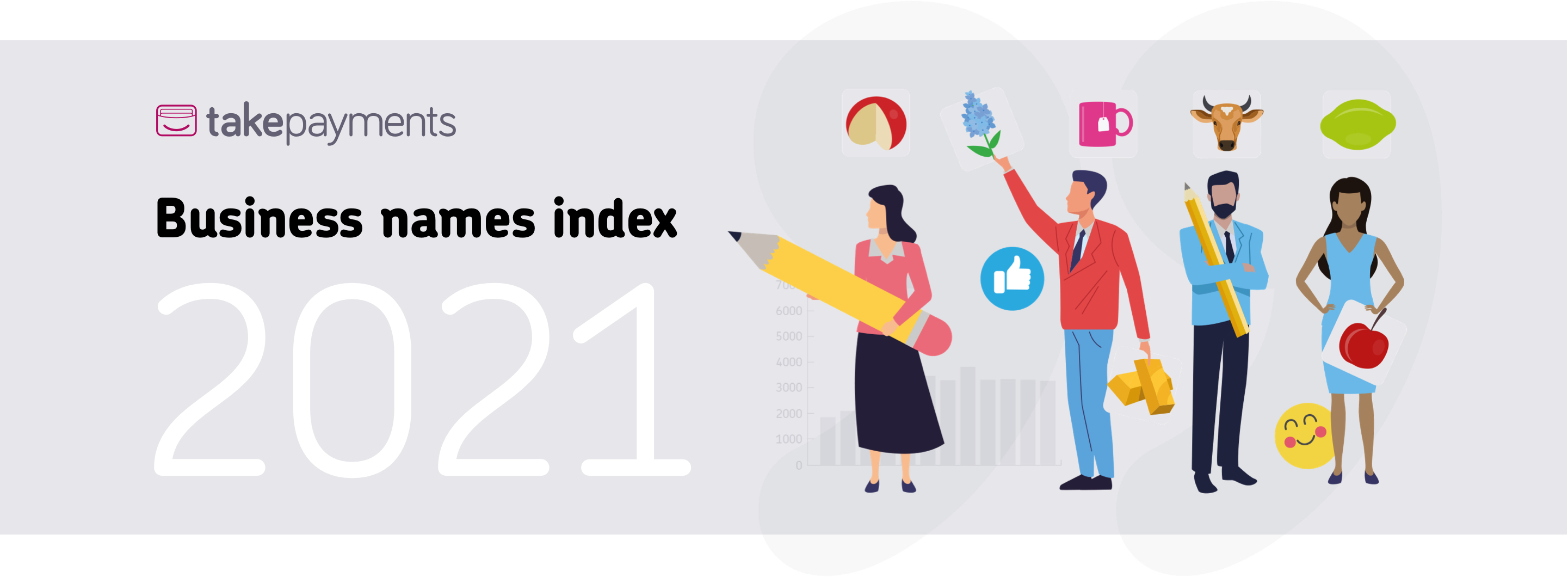
Why business names matter, and how to choose the right one
Ever heard of Ralph Lifshitz? Probably not, because the first decision Mr L made when setting up his new fashion label in 1968 was to change the name he traded under. Something more glamorous was needed, and... Let's just say he's a billionaire and someone sitting near you is probably wearing Ralph Lauren right now.
Ralph knew that a business's name can make a crucial difference, and research confirms it. 77% of consumers base their purchase decisions on a brand name, and 90% of buying decisions are made subconsciously. That means emotionally. So how can you brand your business with a name that has the right emotional appeal? In this article, we'll explore some of the proven routes to choosing a name that resonates with your potential customers.

Be nationally famous
As the figures featured below clearly show, lots of businesses base their brand on the name of a home nation. In fact, 23,859 current UK companies have followed this strategy, but not all nations have equal pulling power. Mentioning Scotland conjures up the skirl of the bagpipes, the mists of the Highlands, the pride and passion of Rob Roy. It stirs deep wells of emotion, and Britain's other nations simply can't compete.
Of course, there are other subtler ways of harnessing the power of Scotland. Using the nation's alternative titles, such as Caledonia or Alba for example, going for a McSomething name, or including a reference to the Highlands.
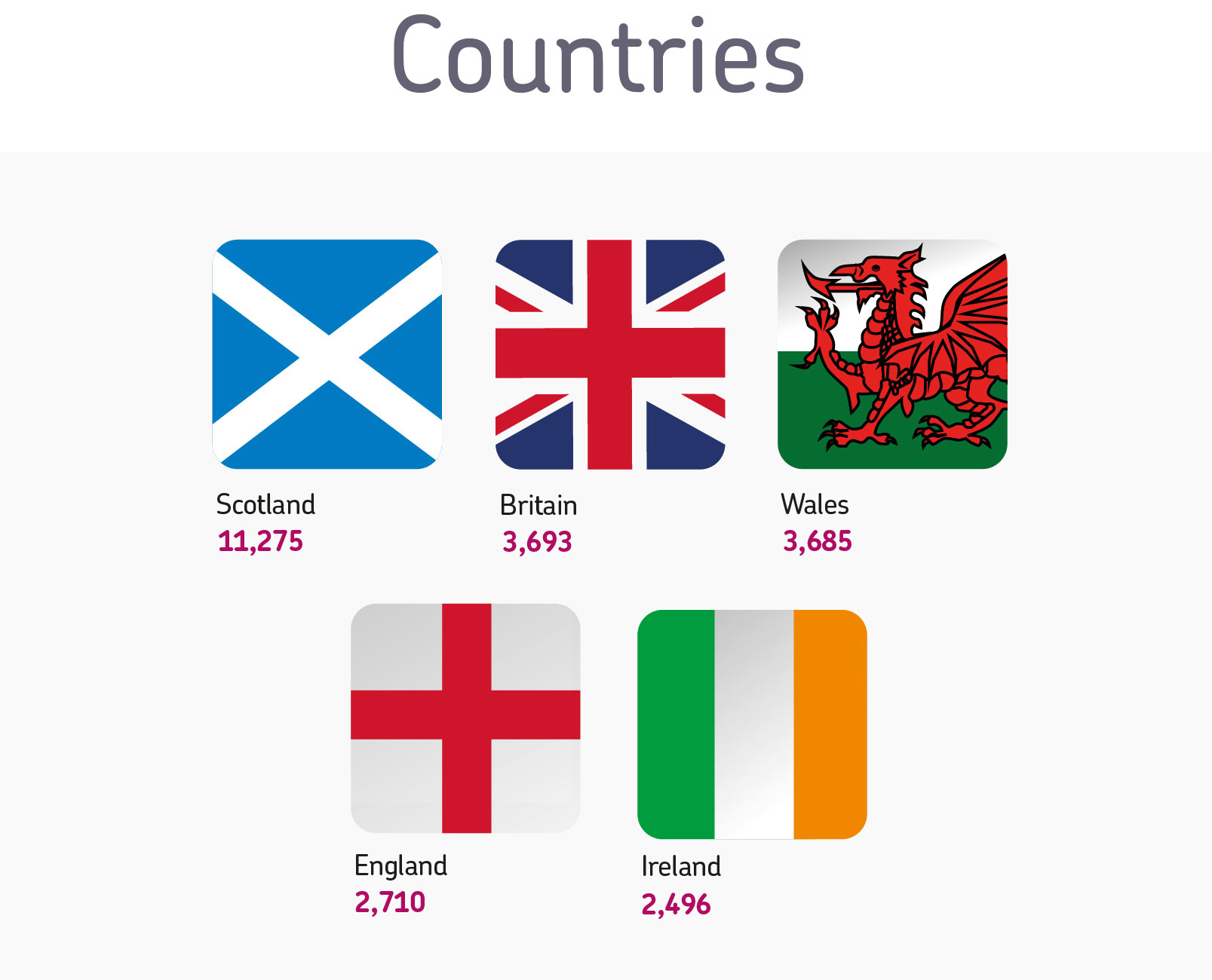
Counties count
A lot of people's passions are roused by loyalties more local than national. That's why county names can be so effective in branding, and 45,555 businesses have a shire in their name.
Sometimes they say "look, we're from round here just like you". Alternatively, they suggest qualities associated with that particular place. Examples include the richness of Devonshire cream, Kent's status as the garden of England, or the distinctive tang of Cheshire cheese. Wondering why Yorkshire isn't higher in the table when its folk are so proud of it? That's simply because we've split it up into North, South, East and West regions.
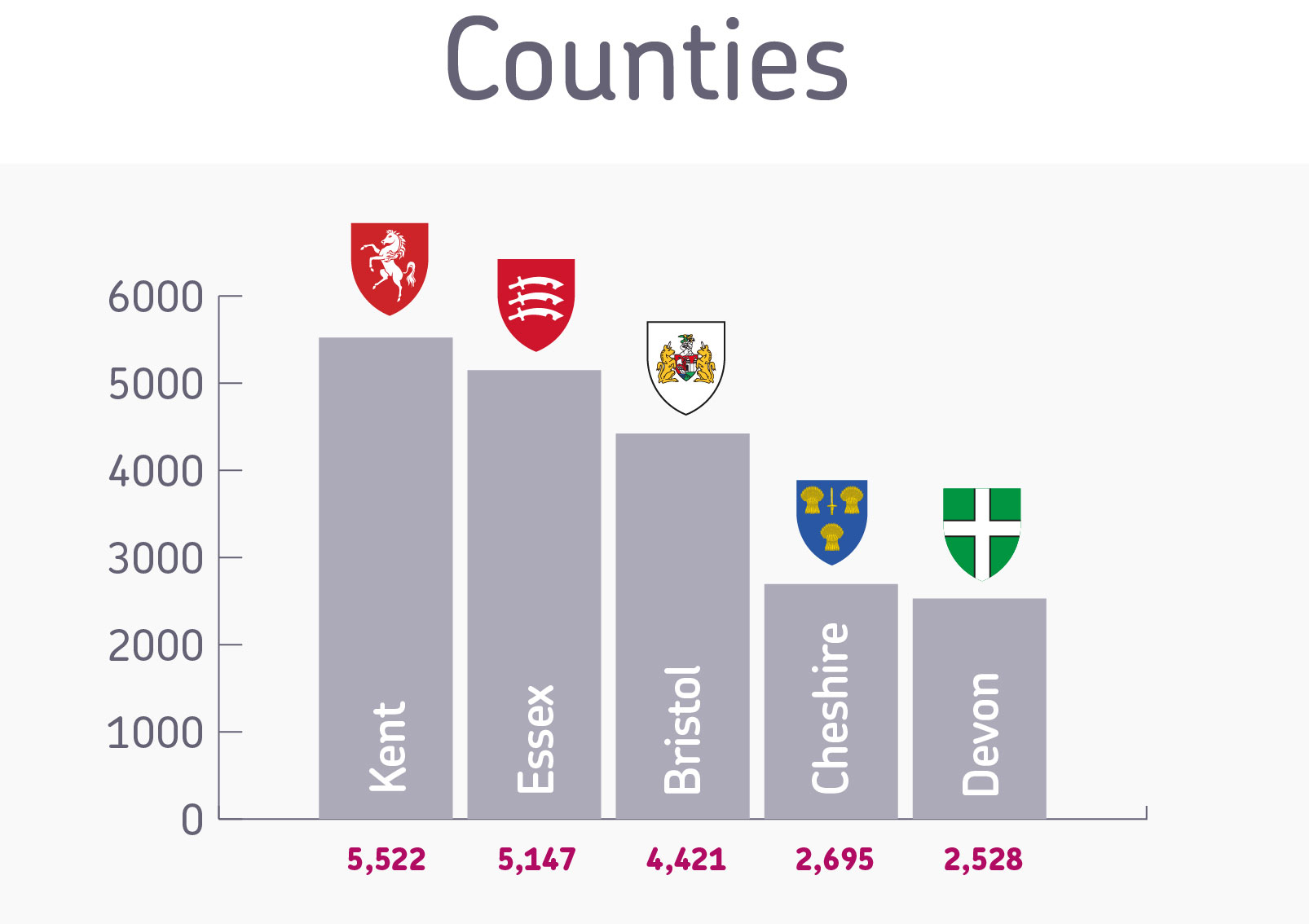
Colour me successful
148,036 businesses have a colour in their name, and they're another effective way to bring emotional appeal. Red is the most popular, perhaps because it can suggest passion and urgency. Green often has peaceful, rustic overtones as well as bringing eco-friendly vibes. The White Company shows how simplicity and purity can be powerful brand values too.
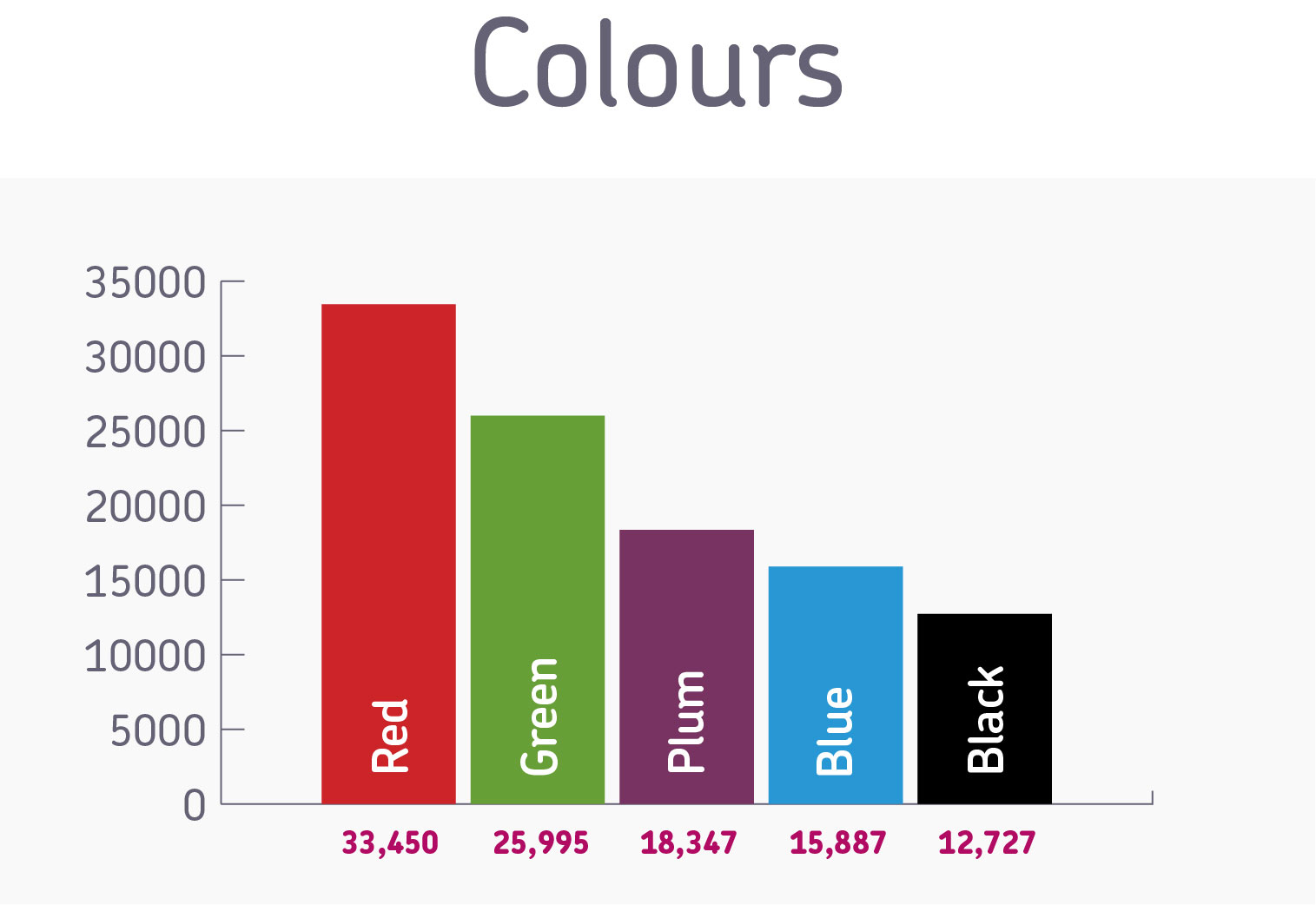
Go to town with a city
Prominent urban centres can also work superbly, so it's no surprise that 135,016 UK businesses have incorporated a city name into their brand.
York evokes heritage as well as all the Yorkshire characteristics, and all our great cities have strong and varied associations you can use to your advantage. London often lends authority and a sense of history, yet Rimmel added a stylish vibe by attaching London onto their name. Similarly, Manchester can sound gritty and industrial or bring "Madchester" pop culture echoes. Bath suggests Regency elegance, while Cambridge and Oxford can be shorthand for education or cutting-edge science.

Be fruitful
Fruity names don't only work for food-related businesses, as Steve Jobs realised when he set up his fairly successful computer business in California. Using a fruit-inspired brand name can bring a sense of freshness and an organic feel. It can also be used to impart a wacky, surreal feel. The restaurant chain Chilli Banana is a perfect example.

Veg out
Similarly, vegetables and herbs can be both resonant and warm. Peas are our most popular veg, so it's no wonder they top the name charts too. Olives bring a sense of continental sophistication, perfect if you want to appeal to foodies. Beans, meanwhile, can be ideal for both their coffee and food connotations.

Stimulate appetites
Foodstuffs, and especially cheeses are popular naming components, but who knew that brie is the biggest cheese by miles? The popularity of the Vietnamese speciality pho is just as surprising. It's less of a shock that tea is so many people's...erm... cup of tea. Or that vegan is an increasingly popular term.


Alcohol
212,328 businesses include an alcoholic beverage in their name. However, this may be a slightly misleading finding, because the most popular drink for naming purposes is port, which has several other meanings. Not much doubt about the popularity of gin, however.

Appeal to animal lovers
Over half a million businesses take this route and no wonder. Every creature name can bring its own resonance to your business name. Ants and bees suggest hard work and being a team for example, while the ox and ape-related names bring a sense of strength and power. Cat and dog names will remind customers of the pets they love to cuddle up with.

Signature surnames
At one time, most businesses carried the surname of the owner or founder. Nowadays there's much more variety and freedom, but over 375,000 current businesses have still taken that route. Using your own name is still an excellent way to bring personality to the company. You can also "borrow" another surname to bring the values it suggests to your business. It's not difficult to guess why King is such a favourite, with its regal sound and overtones of superiority.
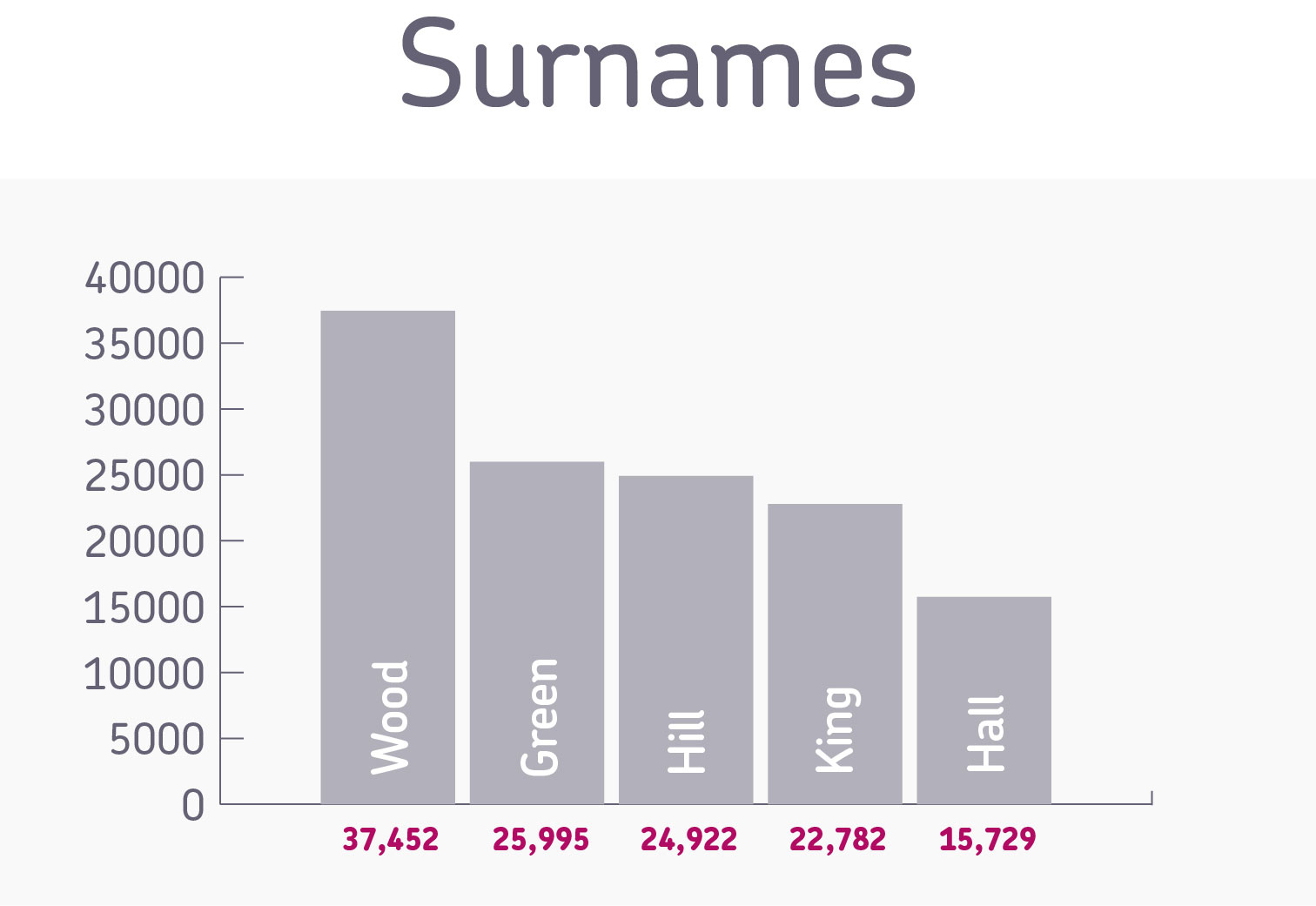
On first name terms
Boys' and girls' names are also popular for the same reason. They can make the business sound personal, rather than abstract or too functional. Again there are the options of simply using your own name or "borrowing" a more meaningful one. Hairdressers often reinvent themselves with movie star names, for example, although Vidal Sassoon didn't have to change his to sound exotic.
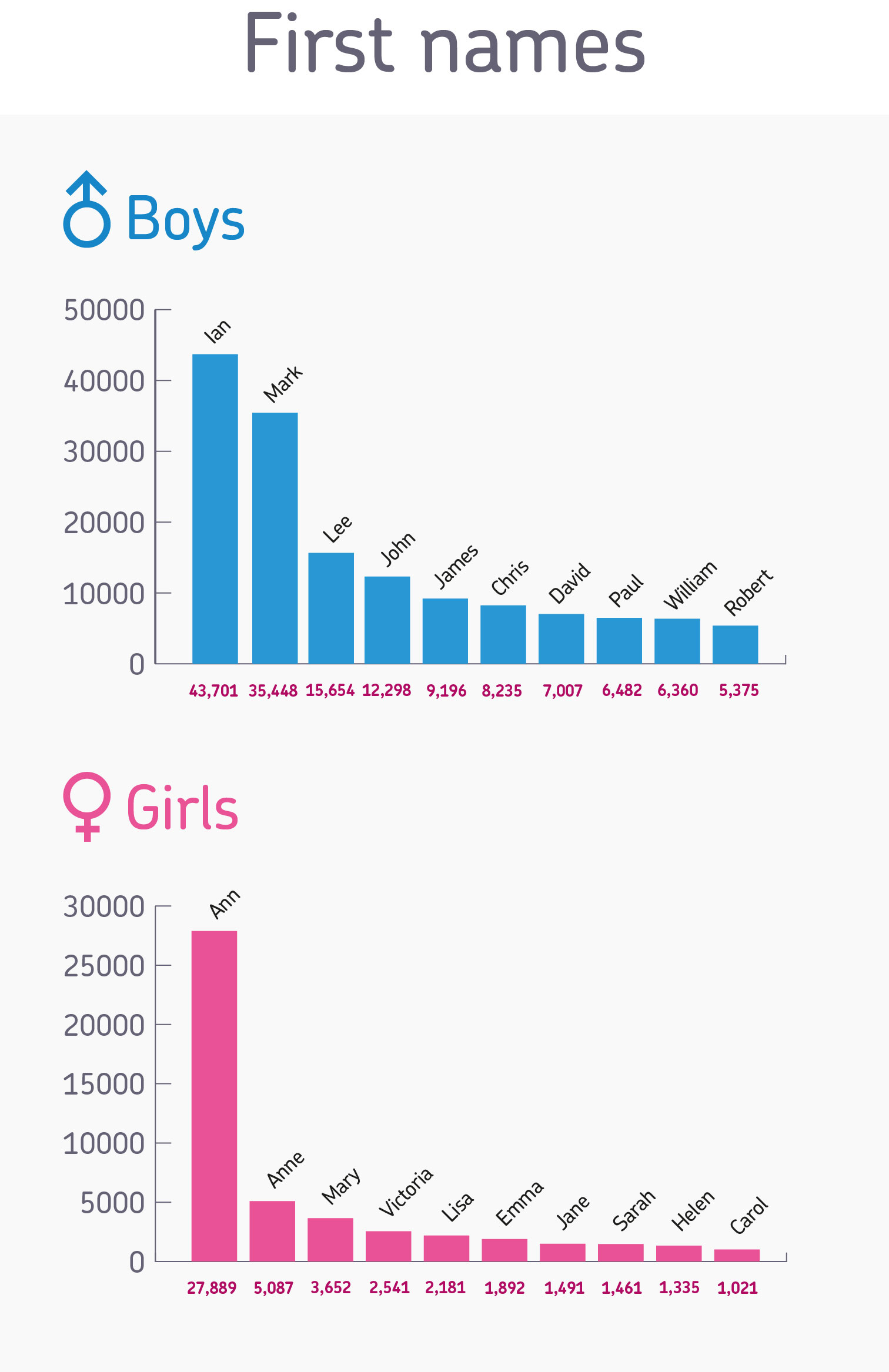
We are family
As with surnames, there used to be lots of family businesses with the word son or sons in them. Even though times have changed, it's still far and away the most frequently chosen family word, with brotherly love lagging a long way behind.

Flourish with flowers
Everyone loves flowers. Their beauty and fragrance make them powerfully evocative and 4,252 businesses have harnessed that flower power with botanically-inspired names. Only the aster with its simple star quality beats most people's favourite bloom, the rose.

Embrace nature
When it comes to natural phenomena and landscape features, ice freezes out the rest. It's quite simply the coolest.

Jewels and precious metals
28,564 businesses include jewels and nobody is going to be surprised that gold is the gold standard. Or that diamonds are a business owner's best friend.
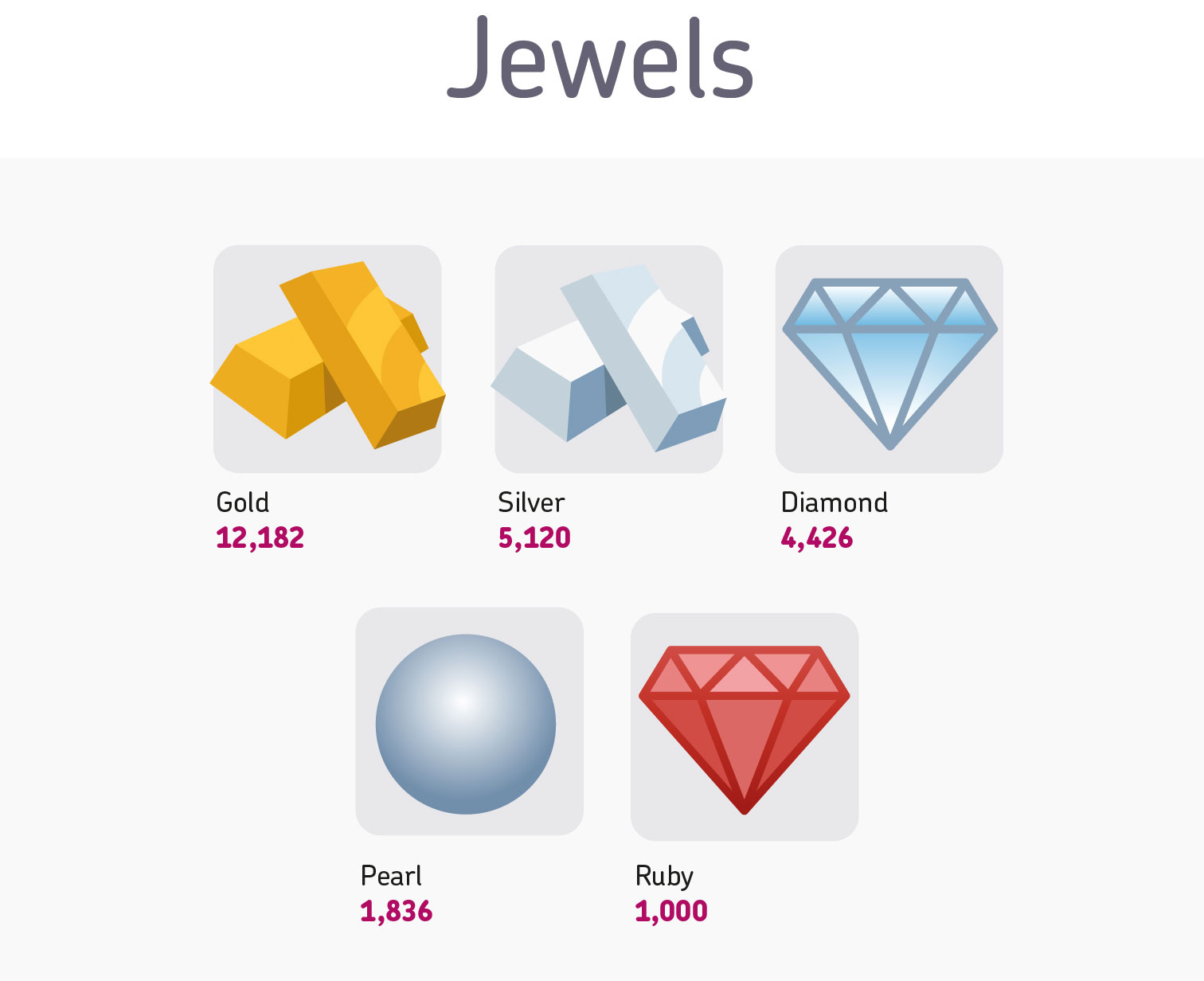
Sentiments
You have to be positive to thrive in business, so naturally good and happy are the sentiments or emotions most frequently associated with new companies.
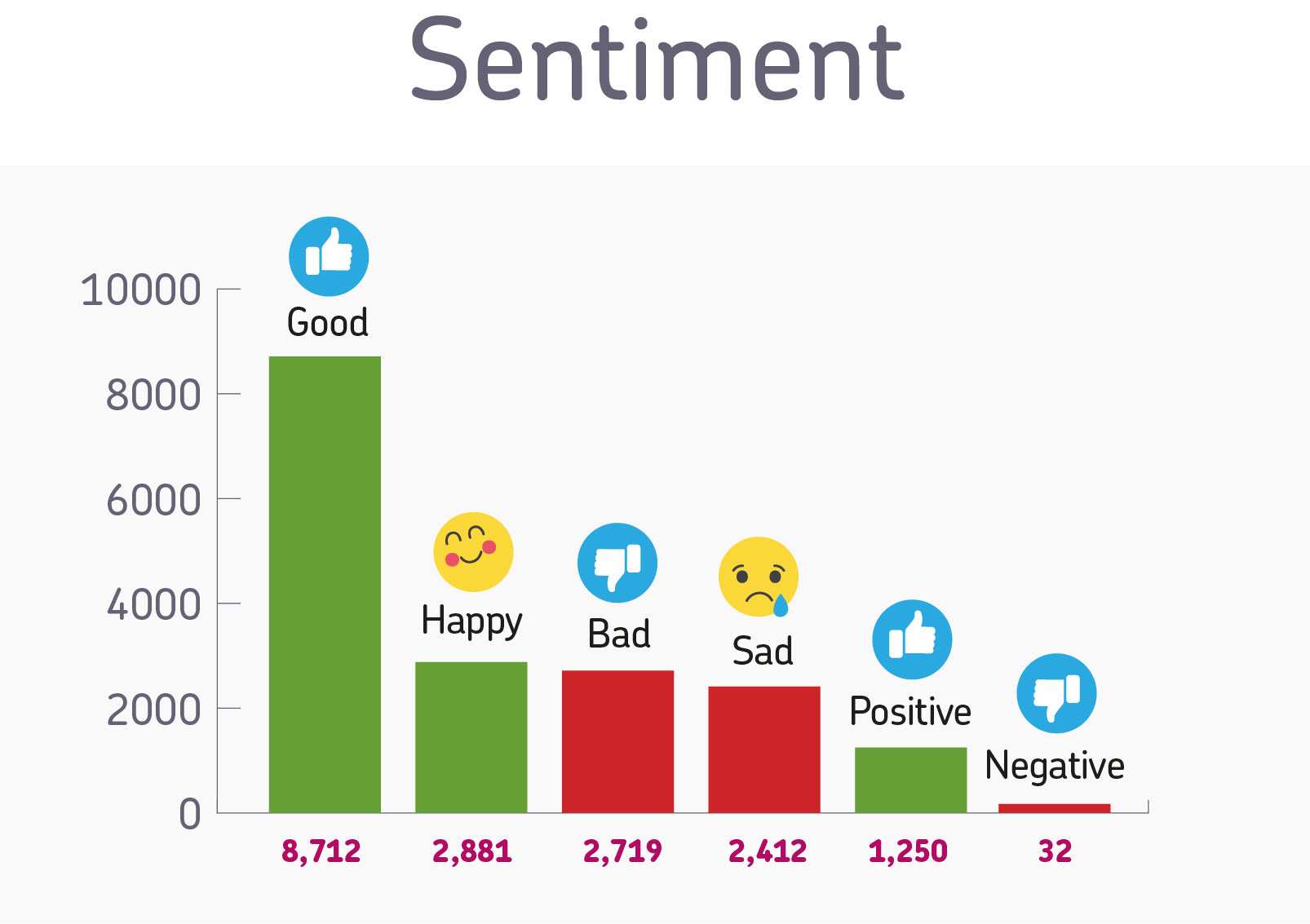
Days, months, years
Thank goodness it's Friday! The popularity of the phrase proves that it's most people's favourite day with all those "here comes the weekend" feelgood vibes. Similarly, it must be the onset of summer that makes May the most-loved month.
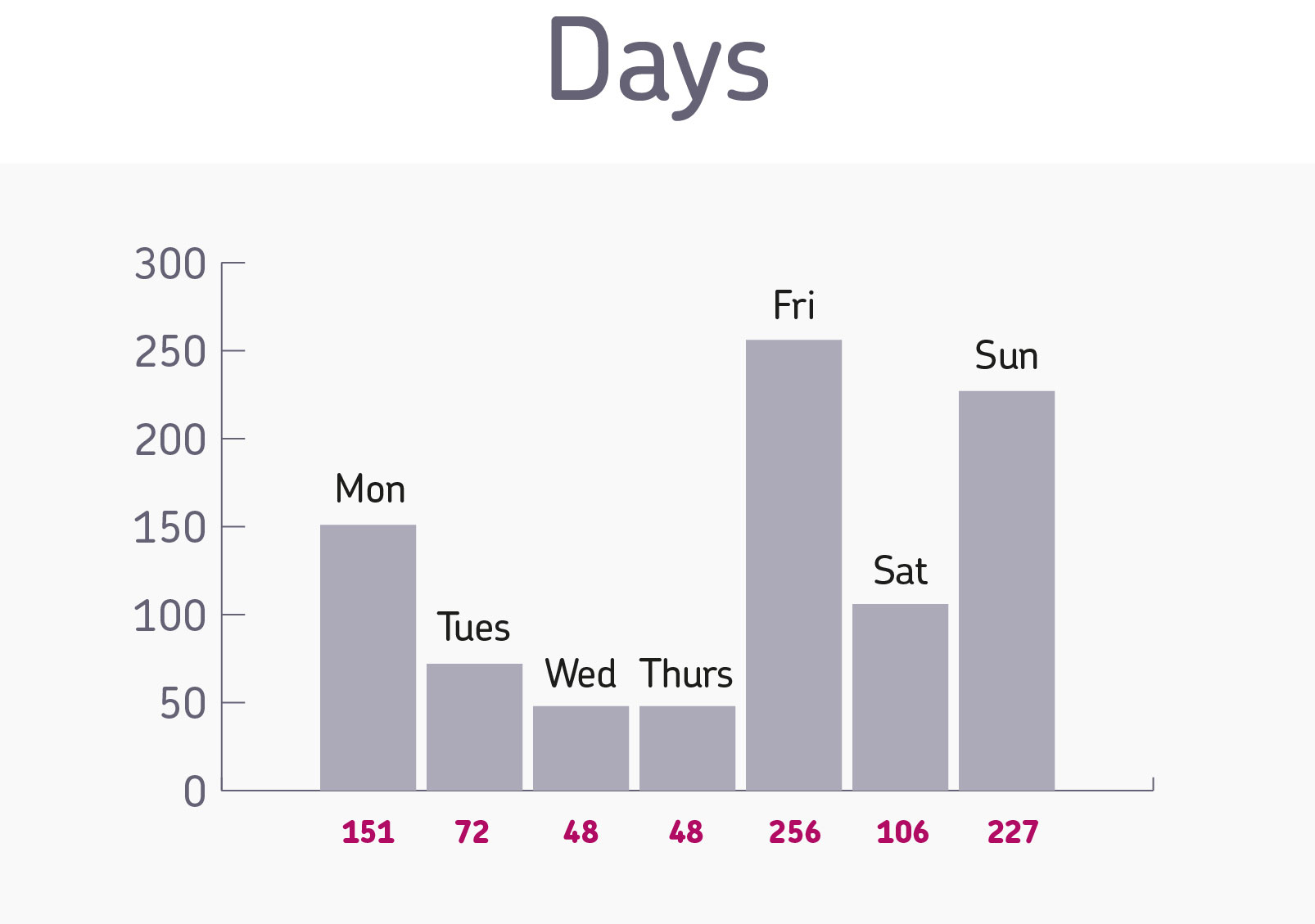
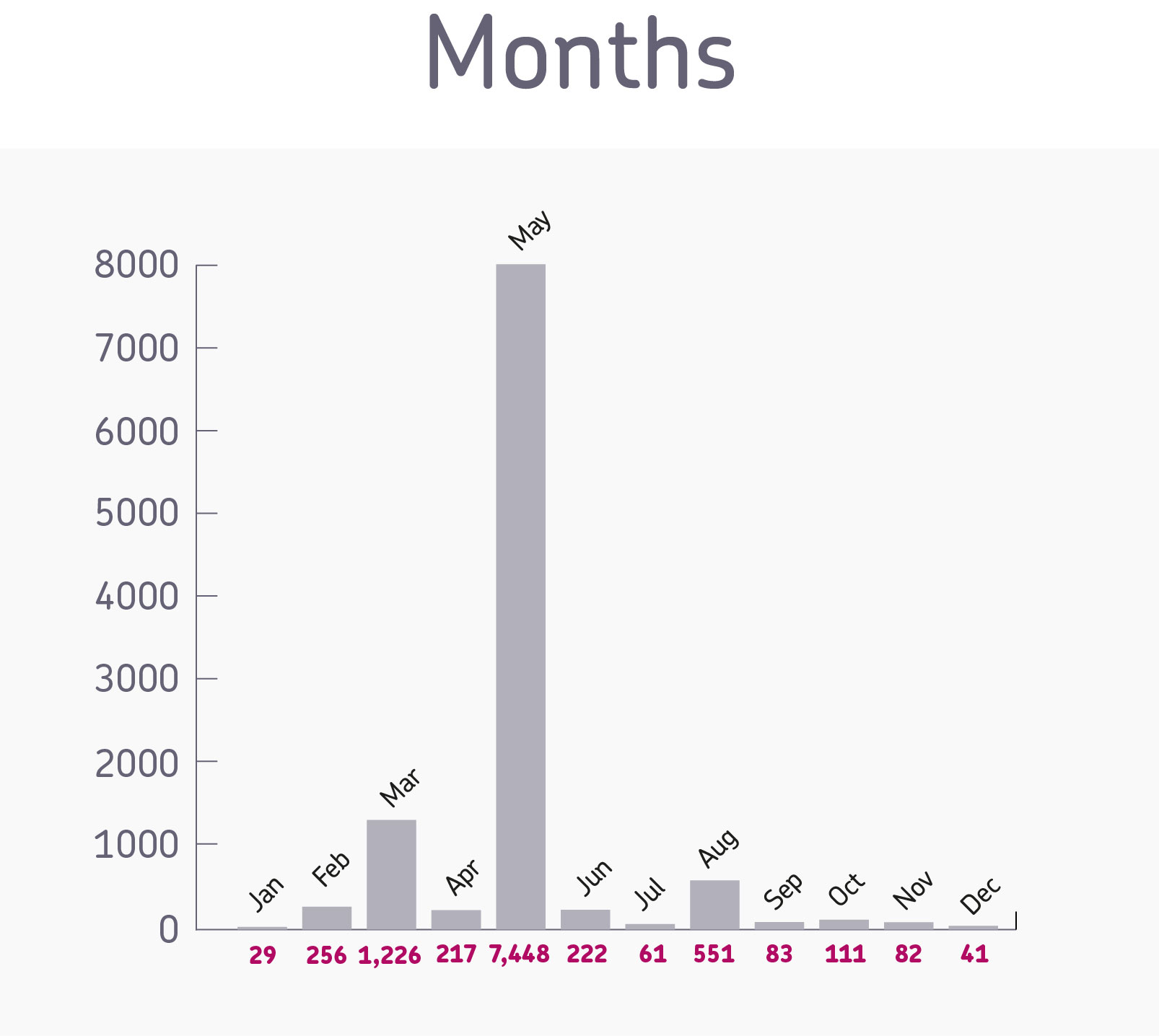
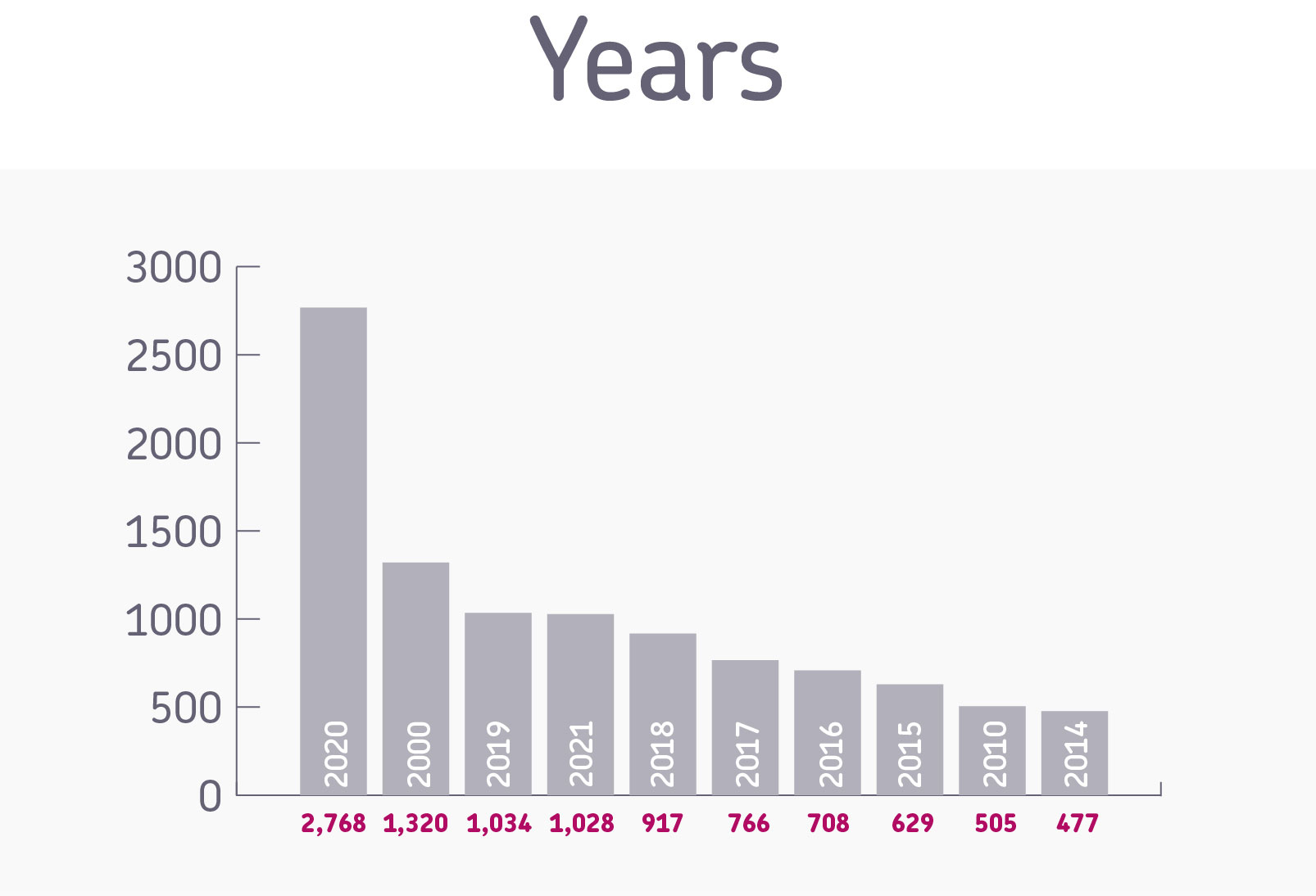
Go dotty
Chances are you need customers to know about your business's online presence, and there's no simpler way of achieving that than by incorporating .com or .co.uk into the brand name.

Business naming tips from a branding expert
We hope you've found some inspiration in these brand name findings, but you can see that there are still so many options. That's why we've invited Ville Vahteri, founding partner of brand agency Bou to pen some words of wisdom about giving your business the perfect name. Over to Ville.
1. Start by defining in one sentence what you want your target audience to think about your company, product or service when they visualise your brand. Only after that can you evaluate how different names fit that image.
2. There are two kinds of names: (1) neutral names that have no or little associations (e.g. most abbreviations), and (2) descriptive names that have strong associations linked to them (e.g. names with Green in them). By choosing a neutral name (e.g. adidas), you can create all associations from scratch. By choosing a descriptive name (e.g. Nike), you can harness existing associations to work for you.
3. Feels like all good names are already in use? You can try using prefixes and suffixes to create unique names out of rather ordinary words: try colors (e.g. Red Bull, Yellow Tail), category terms (e.g. MailChimp, SoundCloud), positive adjectives (e.g. Supercell, Goodreads) or even particles and prepositions (e.g. Allbirds, Under Armour).
4. Your business name is the biggest advertising media your company will ever have. Its by far the most repeated term related to your brand, beyond any taglines, slogans, campaign copies or landing page headers. Even compared to logos, names get repeated much more as they can be written and said out aloud. So take your time to choose the right one. (And yes, you can let AI generate thousands of potential names for you, but please don't' let it choose which one to use).
5. Before falling in love with your new name, do the sanity check: available domains (.com is not a must – you can grow big enough to buy it without having it), google search results (make sure it has no negative connotations), trademarks (better not cause harmful legal issues in your target markets) and say-it-aloud-test (repeat the word multiple times aloud in different sentences and see how easily others can spell it right after hearing it).